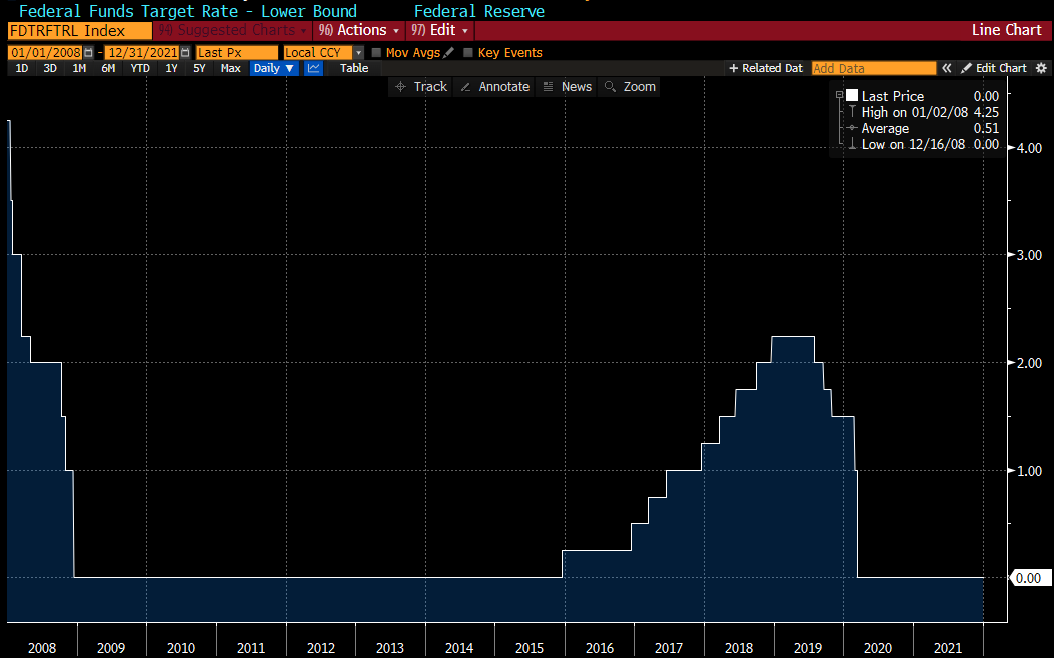Are we in an era of higher interest rates?
In this week’s video insight, I discuss the transition from a long period of unusually low interest rates to what may be a new era of higher interest rates. Following the global financial crisis (GFC) in 2008, the U.S. Federal Reserve (Fed) implemented a policy of keeping the Fed funds rate extremely low, which encouraged fiscal behaviours based on the assumption of persistent low inflation. However, recent spikes in inflation and cost of living, alongside escalating U.S. public debt and government spending, prompt a reevaluation of this policy.
Transcript:
Hello, I’m David Buckland, and welcome to this week’s video insight.
When the global financial crisis got going in 2008, the U.S. Federal Reserve maintained a very loose monetary policy to 2021, with the Fed funds rate not exceeding 2.5 per cent and typically averaging around 0.5 per cent over this 14-year period.

There is no doubt, the “near zero interest rate policy” pursued by the U.S., and many other countries, encouraged very poor fiscal behaviour, as the general thinking was exceptionally low rates of inflation would last forever.
There was a shock that was brought about from the jump in the rate of inflation and the cost of living from 2021. Given the Fed’s target rate of inflation at 2 per cent seems some way off, the question now needs to be asked: are we in an era of higher interest rates?
This comes at a time when U.S. public debt, for example, has jumped from U.S.$5.5 trillion or 37 per cent of gross domestic product (GDP) in 2008 to the current U.S.$35 trillion or 122 per cent of GDP, a tripling of the public debt to GDP ratio. And this is at a time when the U.S. economy is running surprisingly well, with the unemployment rate remaining under 4 per cent. That said, neither major U.S. political party seems keen on a fix, and over the medium-term higher indebtedness, higher interest charges, and higher defence expenditure appears inevitable.
“All government needed to do was get out of the private sector’s way and let them innovate”, according to well-known U.S. investor, Stanley Druckenmiller.
Government overreach appears to be increasing, and as Kerry Packer told a stunned Parliamentary committee in 1991 when commenting on minimising tax, “as a government you’re not spending it that well that we should be donating extra”. An insightful comment that remains as accurate today as it did 33 years ago.
Despite some warnings of stagflation, U.S. corporates seem to be in good shape, with strong balance sheets. Of the 80 per cent of the S&P 500 companies who have reported their March 2024 quarterly results, earnings are up 5 per cent year-on-year on 4.2 per cent revenue growth, and three of the 11 industry sectors have posted double-digit earnings growth.
That’s all I have time for this week. Please continue to follow us on Facebook and X. Thank you.